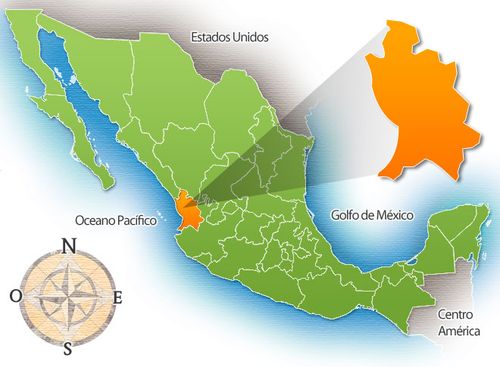Vitamin D3 and K2 are a Team | But Is Vitamin K2 Needed with Vitamin D?
CCMray • June 28, 2024 • 0 views
Vitamin D3 and K2
The synergy between Vitamin D3 and Vitamin K2 is a fascinating aspect of nutritional science, highlighting the intricate interplay between different vitamins within the body. Vitamin D3, often referred to as the "sunshine vitamin," is crucial for various physiological processes. It is primarily synthesized in the skin upon exposure to sunlight, and its active form, calcitriol, plays a pivotal role in calcium absorption, bone health, and more. On the other hand, Vitamin K2, a lesser-known but equally important nutrient, is involved in regulating calcium in the body and directing it to the bones and teeth while diverting its deposition in arteries and soft tissues.
How Does Vitamin D3 and K2 Work?
One of the key functions of Vitamin D3 is to enhance the absorption of calcium in the intestines, ensuring an adequate supply for bone mineralization. However, the efficient utilization of this calcium is contingent upon proper distribution, a task at which Vitamin K2 performs.
Vitamin K2 activates proteins, such as osteocalcin, which guide calcium into the bones and teeth. Simultaneously, Vitamin K2 helps to inhibit the activity of matrix Gla-protein (MGP), diverting the undesirable accumulation of calcium in blood vessels and tissues. This delicate balance orchestrated by the cooperative efforts of Vitamin D3 and K2 ensures optimal skeletal health while guarding against arterial calcification.
What is Vitamin K
Vitamin K on the other hand does not come from the sun you have k1 which is found in your leafy green vegetables and k2 which is found in your meats, eggs, and fermented foods like natto, which is a japanese fermented soybean said to have one of the highest sources of k2.
This is why a vitamin D deficiency, is said to cause bone loss, because that balance is missing. And when calcium intake is low, your body really has no other choice but to use the calcium storage in your bones, even if it is at the cost of bone loss and osteoporosis over time. Which is why you need vitamin d3.
After 3 years of supplementation, "the vitamin D and K group maintained vessel wall characteristics of the carotid artery, whereas the control group and the vitamin D-only group significantly worsened over 3 years of follow-up."
Secondly, in a 3-year, double-blind, randomized controlled trial in older men and women free of clinical Cardiovascular disease, I think that is important to highlight, they were free of cvd, the daily supplemental vitamin K in amounts achievable by high dietary intake of green, leafy vegetables, combined with 600 mg calcium carbonate and 400 IU vitamin D did not result in lower coronary artery calcium progression compared to the calcium + vitamin D group. But In a subgroup analysis of participants who were 85% and greater adherent to supplementation, there was less coronary artery calcium progression in the vitamin K + calcium and vitamin D groups than in the calcium and vitamin D group alone."
👉 https://www.ncbi.nlm.nih.gov/pmc/arti...
Which implies what? That Vitamin K being the third wheel on the date, made sure that vitamin D and calcium don't get into any funny business aka the progression of vascular calcification.
What form of Vitamin K2 is Best? MK4 vs MK7
The predominant form of vitamin K2 found in the body is MK4. In fact, In fact, your biochemistry converts all forms of vitamin K, including vitamin K1 and MK7, to MK4.3 Only the MK4 form of vitamin K2 accumulates in your body. It’s in the breasts, thyroid, ovaries, salivary glands, skin, pancreas, spleen, testes, intestines, brain, kidneys, and bone.4-6 This suggests that MK4 is the biologically active form of vitamin K2 with wide-ranging health benefits.
The synergy between Vitamin D3 and Vitamin K2 is a fascinating aspect of nutritional science, highlighting the intricate interplay between different vitamins within the body. Vitamin D3, often referred to as the "sunshine vitamin," is crucial for various physiological processes. It is primarily synthesized in the skin upon exposure to sunlight, and its active form, calcitriol, plays a pivotal role in calcium absorption, bone health, and more. On the other hand, Vitamin K2, a lesser-known but equally important nutrient, is involved in regulating calcium in the body and directing it to the bones and teeth while diverting its deposition in arteries and soft tissues.
How Does Vitamin D3 and K2 Work?
One of the key functions of Vitamin D3 is to enhance the absorption of calcium in the intestines, ensuring an adequate supply for bone mineralization. However, the efficient utilization of this calcium is contingent upon proper distribution, a task at which Vitamin K2 performs.
Vitamin K2 activates proteins, such as osteocalcin, which guide calcium into the bones and teeth. Simultaneously, Vitamin K2 helps to inhibit the activity of matrix Gla-protein (MGP), diverting the undesirable accumulation of calcium in blood vessels and tissues. This delicate balance orchestrated by the cooperative efforts of Vitamin D3 and K2 ensures optimal skeletal health while guarding against arterial calcification.
What is Vitamin K
Vitamin K on the other hand does not come from the sun you have k1 which is found in your leafy green vegetables and k2 which is found in your meats, eggs, and fermented foods like natto, which is a japanese fermented soybean said to have one of the highest sources of k2.
This is why a vitamin D deficiency, is said to cause bone loss, because that balance is missing. And when calcium intake is low, your body really has no other choice but to use the calcium storage in your bones, even if it is at the cost of bone loss and osteoporosis over time. Which is why you need vitamin d3.
After 3 years of supplementation, "the vitamin D and K group maintained vessel wall characteristics of the carotid artery, whereas the control group and the vitamin D-only group significantly worsened over 3 years of follow-up."
Secondly, in a 3-year, double-blind, randomized controlled trial in older men and women free of clinical Cardiovascular disease, I think that is important to highlight, they were free of cvd, the daily supplemental vitamin K in amounts achievable by high dietary intake of green, leafy vegetables, combined with 600 mg calcium carbonate and 400 IU vitamin D did not result in lower coronary artery calcium progression compared to the calcium + vitamin D group. But In a subgroup analysis of participants who were 85% and greater adherent to supplementation, there was less coronary artery calcium progression in the vitamin K + calcium and vitamin D groups than in the calcium and vitamin D group alone."
👉 https://www.ncbi.nlm.nih.gov/pmc/arti...
Which implies what? That Vitamin K being the third wheel on the date, made sure that vitamin D and calcium don't get into any funny business aka the progression of vascular calcification.
What form of Vitamin K2 is Best? MK4 vs MK7
The predominant form of vitamin K2 found in the body is MK4. In fact, In fact, your biochemistry converts all forms of vitamin K, including vitamin K1 and MK7, to MK4.3 Only the MK4 form of vitamin K2 accumulates in your body. It’s in the breasts, thyroid, ovaries, salivary glands, skin, pancreas, spleen, testes, intestines, brain, kidneys, and bone.4-6 This suggests that MK4 is the biologically active form of vitamin K2 with wide-ranging health benefits.

























